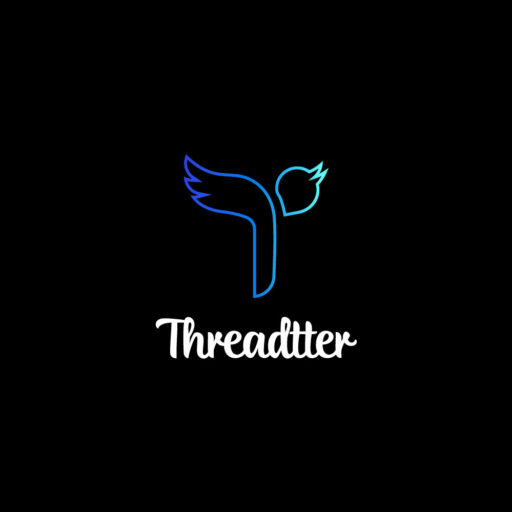In an era where misinformation spreads faster than ever, social media platforms face intense scrutiny over how they handle content moderation. Meta, the parent company of Facebook and Instagram, has been at the center of these debates, often criticized for its handling of false information, especially during election cycles and global crises. Recently, Mark Zuckerberg signaled a shift in strategy—moving from traditional fact-checking to a more community-driven approach, inspired by Twitter’s (now X) “Community Notes.” But what led to this pivot, and what are the implications for the future of online information integrity?
The History of Meta’s Fact-Checking Efforts
Meta’s fact-checking program began in earnest after the 2016 U.S. presidential election, when the platform was widely blamed for enabling the spread of fake news. Partnering with third-party fact-checking organizations certified by the International Fact-Checking Network (IFCN), Meta aimed to flag and reduce the spread of misleading content. However, the initiative quickly ran into several challenges:
- Accusations of Bias
Critics on both sides of the political spectrum accused Meta’s fact-checkers of bias. Conservatives claimed the platform disproportionately targeted right-leaning content, while liberals argued that harmful misinformation from far-right sources wasn’t being flagged aggressively enough. - Scalability Issues
With billions of users and an ever-growing volume of content, it became nearly impossible for third-party fact-checkers to keep up. Automated systems helped, but they often flagged innocuous posts or missed subtle forms of misinformation. - Legal and Regulatory Pressures
Meta faced lawsuits and regulatory threats worldwide. In the U.S., debates over Section 230 protections intensified, while in countries like India and Brazil, local governments pressured Meta to comply with stricter content moderation laws.
Meta’s ‘Intense Year’ Ahead: What Employees Can Expect from Zuckerberg’s 2025 Plans
Why Move to Community Notes?
The shift towards a community-based moderation model is both strategic and pragmatic. Here’s why Zuckerberg believes this new approach could be more effective:
- Decentralizing Content Moderation
By allowing users to contribute to the fact-checking process, Meta aims to democratize information validation. Community Notes, originally popularized by Twitter, relies on a diverse set of contributors who can add context to misleading posts. This approach reduces the perception of top-down censorship and places power in the hands of the user base. - Reducing Legal Risks
Moving away from centralized fact-checking could help Meta navigate complex legal landscapes. By framing content moderation as a community-driven effort, Meta can argue that it’s not directly responsible for policing speech, potentially mitigating legal liabilities. - Improving Trust and Engagement
Community Notes can foster a sense of collective responsibility, encouraging users to engage more thoughtfully with content. Early data from Twitter showed that posts with community notes were less likely to be shared if they contained misleading information.
Impact Metrics Comparison (2022-2023):
| Platform | Misinformation Reduction | User Trust Increase | Engagement Decline on Flagged Posts |
| Twitter (X) | 35% | 25% | 40% |
| Meta | 20% | 10% | 25% |
Meta vs. TikTok: Why Zuckerberg Initially Underestimated the Competition
Challenges and Criticisms
Despite its potential benefits, the move to Community Notes is not without its pitfalls:
- Potential for Manipulation
Critics argue that community-driven models can be gamed by coordinated groups, leading to biased or misleading notes. Ensuring a diverse and representative set of contributors will be crucial for maintaining credibility. - Quality Control
While decentralization can democratize fact-checking, it also raises concerns about the quality and accuracy of the notes. Meta will need robust systems to vet contributions and prevent the spread of further misinformation. - Global Implementation Challenges
Meta operates in diverse linguistic and cultural contexts. Implementing Community Notes effectively across different regions will be a complex task, requiring localized moderation strategies and oversight.
Comparing Meta and Twitter’s Approaches
While Meta is adopting the Community Notes model, its scale and global reach pose unique challenges compared to Twitter. Here’s how the two platforms stack up:
| Feature | Twitter (X) | Meta |
| User Base Size | ~400 million | ~3 billion |
| Languages Supported | 40+ | 100+ |
| Community Contributor Vetting | Crowdsourced with basic vetting | Anticipated AI-assisted vetting |
| Legal Challenges | Moderate, U.S.-centric | High, global regulatory pressures |
| Implementation Timeline | Fully implemented by 2022 | Pilot phase in 2024, full rollout expected by 2025 |
Meta’s Hybrid Work Policy: Why Zuckerberg Thinks ‘The Status Quo is Fine’
Future Implications
If successful, Meta’s adoption of Community Notes could redefine how misinformation is managed on social media. It could also set a precedent for other platforms grappling with similar issues. However, the approach’s success will hinge on Meta’s ability to balance decentralization with effective oversight.
- Potential for Broader Adoption
If Community Notes prove effective, we might see other tech giants like YouTube or Reddit adopting similar models, fostering a more collaborative approach to content moderation across the internet. - Impact on Political Discourse
With elections looming in several major democracies, the effectiveness of Community Notes in curbing political misinformation will be closely watched. Success or failure in this area could significantly influence public trust in social media platforms. - Technological Innovations
Meta’s vast AI capabilities could play a crucial role in refining the Community Notes model, ensuring higher accuracy and faster moderation without heavy-handed censorship.
Conclusion
Mark Zuckerberg’s move towards a community-driven fact-checking model represents a significant shift in how Meta approaches misinformation. While this strategy aims to address past criticisms and legal challenges, its success will depend on careful implementation and ongoing oversight. As the digital landscape evolves, Meta’s Community Notes could either become a blueprint for future content moderation or another controversial chapter in the company’s complex history with truth and transparency.


